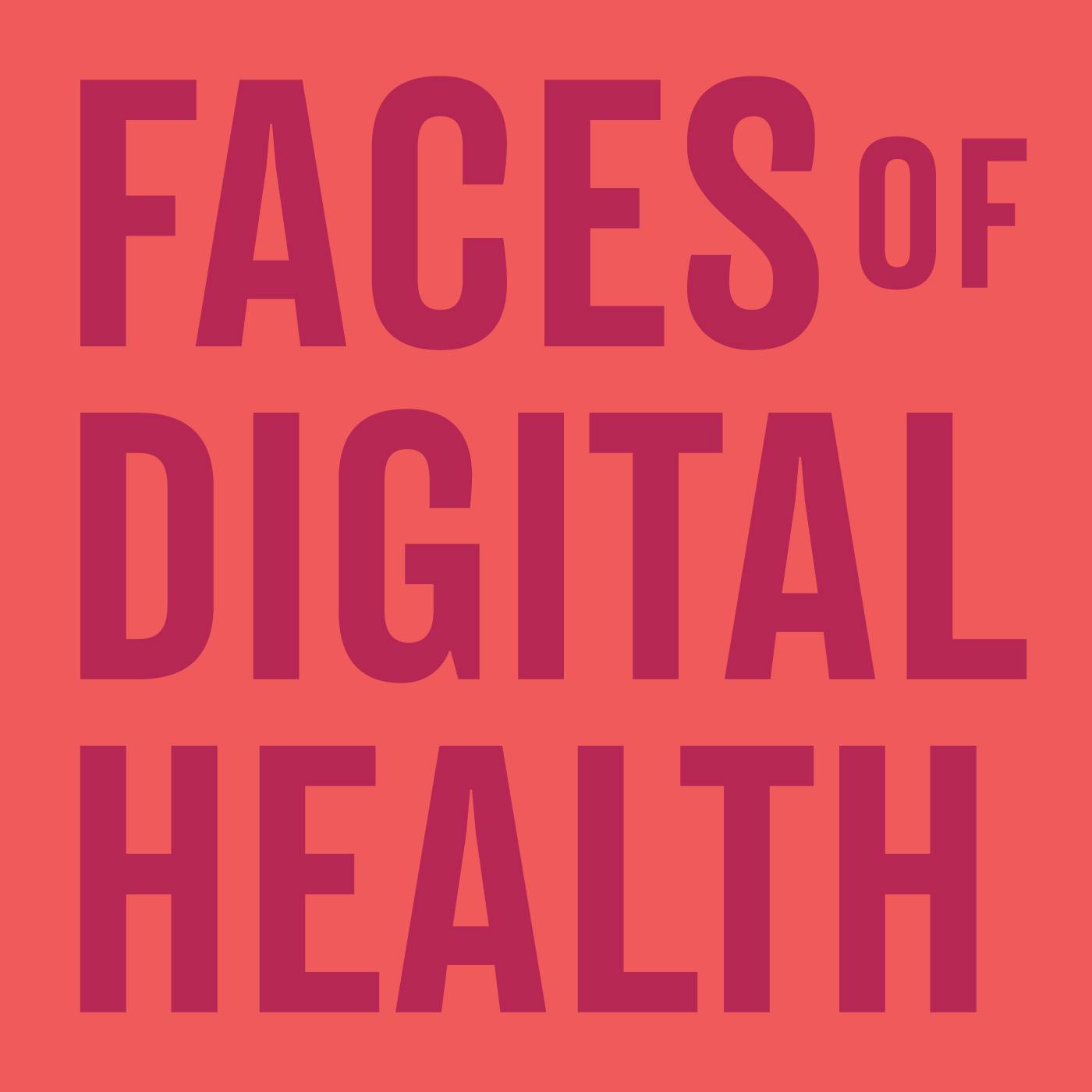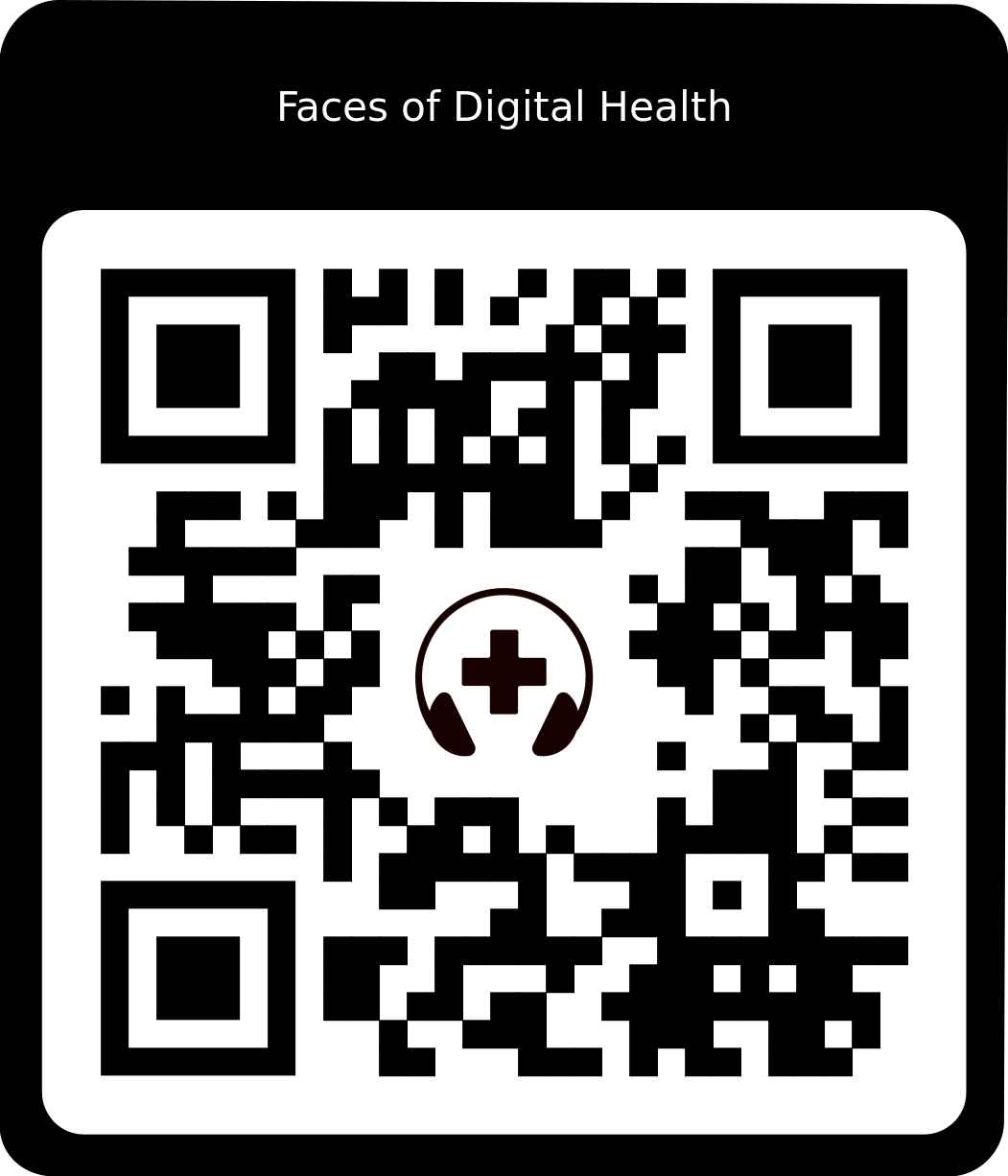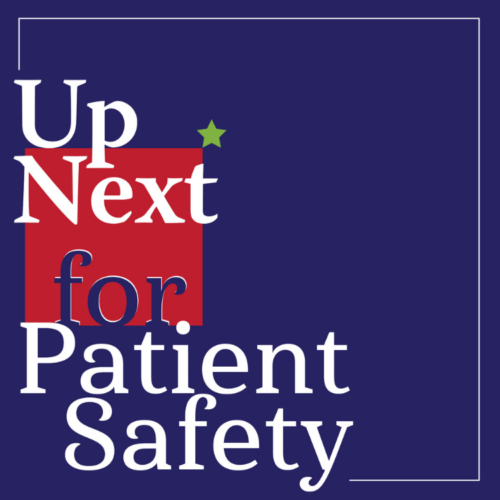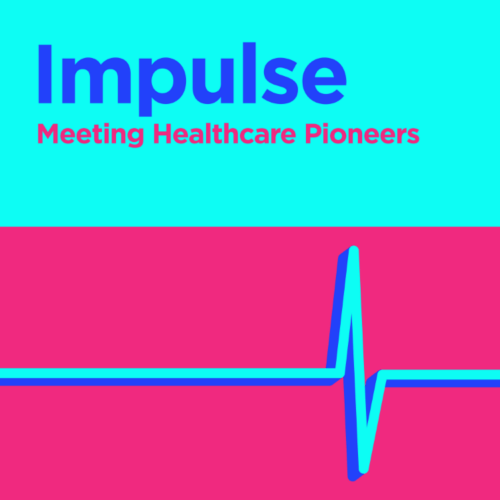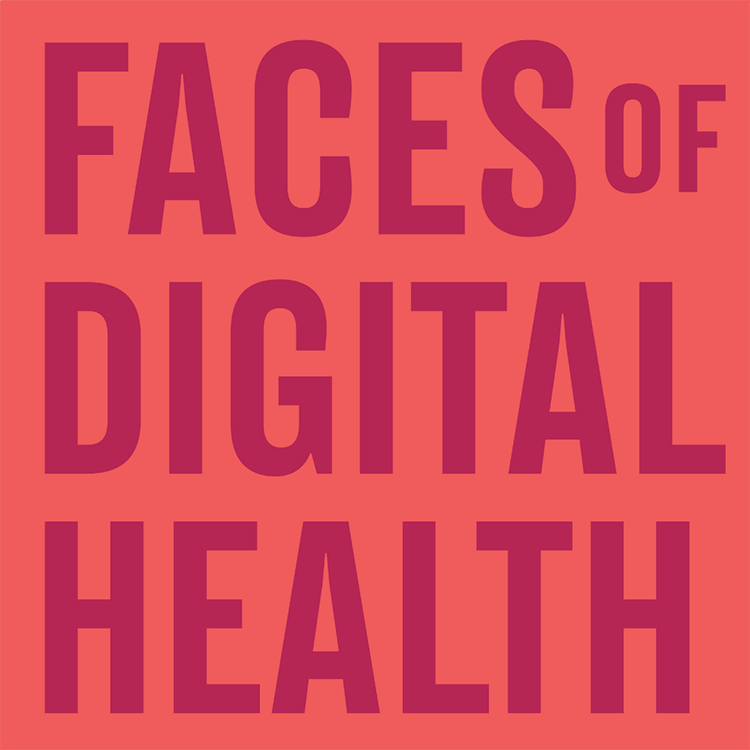
Faces of Digital Health
A podcast about digital health and how healthcare systems adopt technologies.
How is Europe preparing for secondary use of data in healthcare through EHDS?
Fidelia Cascini is Digital Healh expert engaged by the Italian Ministry of Health on European and national initiative. She recently wrote a book on secondary use of data in healthcare, read it here:
Secondary Use of Electronic Health Data
Public Health Perspectives, Use Cases and Challenges
https://link.springer.com/book/10.100...
This conversation covers the categorization of electronic health data, the importance of distinguishing different data types, and the potential applications and challenges in digital health. We also explore healthcare systems' digitalization, patient data privacy, the European Health Data Space (EHDS), and future public health perspectives. Learn about patient-generated data, clinical trials, and the significant role of digital health advancements in shaping the future of healthcare.
www.facesofdigitalhealth.com
Newsletter: https://fodh.substack.com/
Youtube: https://www.youtube.com/watch?v=tbSCXUhIDZ8
Show notes:
01:08 Diving into Different Categories of Health Data
01:35 Discussion on Secondary Use of Data in Europe
02:16 Call for Listener Feedback
03:07 Starting the Interview with Felia Kini
03:36 Importance of Distinguishing Data Types
04:38 Challenges in Using Different Data Sources
06:38 Real-World vs. Clinical Trial Data
07:19 Patient Preferences and Medication Adherence
09:31 Most Suitable Data for Secondary Purposes
10:32 Patient Generated Health Data
11:53 Discussions Among Health Ministries
13:09 Trustworthiness and Integration of Digital Tools
17:45 Patient Reported Outcomes in EHRs
19:35 European Health Data Space (EHDS)
29:55 Patient Control Over Data
33:47 Barriers to EHDS Success
37:13 Public Health Perspectives and Global Changes
40:14 Conclusion and Future Perspectives
42:20 Closing Remarks and Upcoming Events
May 6, 2025
How is Europe preparing for secondary use of data in healthcare through EHDS?
Fidelia Cascini is Digital Healh expert engaged by the Italian Ministry of Health on European and national initiative. She recently wrote a book on secondary use of data in healthcare, read it here:
Secondary Use of Electronic Health Data
Public Health Perspectives, Use Cases and Challenges
https://link.springer.com/book/10.100...
This conversation covers the categorization of electronic health data, the importance of distinguishing different data types, and the potential applications and challenges in digital health. We also explore healthcare systems' digitalization, patient data privacy, the European Health Data Space (EHDS), and future public health perspectives. Learn about patient-generated data, clinical trials, and the significant role of digital health advancements in shaping the future of healthcare.
www.facesofdigitalhealth.com
Newsletter: https://fodh.substack.com/
Youtube: https://www.youtube.com/watch?v=tbSCXUhIDZ8
Show notes:
01:08 Diving into Different Categories of Health Data
01:35 Discussion on Secondary Use of Data in Europe
02:16 Call for Listener Feedback
03:07 Starting the Interview with Felia Kini
03:36 Importance of Distinguishing Data Types
04:38 Challenges in Using Different Data Sources
06:38 Real-World vs. Clinical Trial Data
07:19 Patient Preferences and Medication Adherence
09:31 Most Suitable Data for Secondary Purposes
10:32 Patient Generated Health Data
11:53 Discussions Among Health Ministries
13:09 Trustworthiness and Integration of Digital Tools
17:45 Patient Reported Outcomes in EHRs
19:35 European Health Data Space (EHDS)
29:55 Patient Control Over Data
33:47 Barriers to EHDS Success
37:13 Public Health Perspectives and Global Changes
40:14 Conclusion and Future Perspectives
42:20 Closing Remarks and Upcoming Events
May 6, 2025
Why are clinicians leaving medical practice?
In the evolving landscape of work life balance expectations workforce dynamics is reshaping the future of medicine. Dr Amanda Herbrand, clinical data specialist at the University Hospital Basel and former oncologist, shares her insights on this transformation, highlighting the critical role of technology and shifts in physician careers in healthcare. Dr. Herand shares her transition from oncology to healthcare IT and the challenges and solutions in integrating clinical expertise with IT systems. The host and Amanda explore changing workforce expectations, the role of technology in alleviating clinical burdens, and the importance of digital health literacy. The conversation also covers clinical data modeling, international collaborations, and the future vision of healthcare IT development.
00:00 Introduction to Faces of Digital Health
02:00 Interview with Dr. Amanda Herand
02:27 Transition from Oncology to Clinical Data Specialization
04:36 Challenges and Observations in Healthcare IT
11:35 The Role of Digital Health Literacy
14:39 Clinical Data Modeling at University Hospital Basel
27:41 Future of Healthcare Data and Precision Medicine
32:33 Conclusion and Final Thoughts
www.facesofdigitalhealth.com
Newsletter: https://fodh.substack.com/
Youtube:
April 24, 2025
Why Patients Lie—and How AI is Helping Doctors See the Truth
 57% of patients lie to their doctors, says Dr Jérome BOUAZIZ, CEO of One Clinic.
Not maliciously—but out of discomfort, stigma, or fear of judgment. Whether it's drug use, alcohol, sleep issues, or mental health, these omissions can have life-altering consequences.
On the other side, many doctors avoid asking sensitive questions. Not because they don’t care—but because of time constraints or uncertainty about how to handle the answers.
At One Clinic, a new approach flips this dynamic.
57% of patients lie to their doctors, says Dr Jérome BOUAZIZ, CEO of One Clinic.
Not maliciously—but out of discomfort, stigma, or fear of judgment. Whether it's drug use, alcohol, sleep issues, or mental health, these omissions can have life-altering consequences.
On the other side, many doctors avoid asking sensitive questions. Not because they don’t care—but because of time constraints or uncertainty about how to handle the answers.
At One Clinic, a new approach flips this dynamic.
 Patients complete a 60–100 question digital pre-consultation.
Patients complete a 60–100 question digital pre-consultation.
 Responses feed into validated clinical scores (like STOP-BANG for sleep apnea).
Responses feed into validated clinical scores (like STOP-BANG for sleep apnea).
 Doctors receive structured, AI-supported insights before the visit begins.
Doctors receive structured, AI-supported insights before the visit begins.
 Every consultation becomes a "Personal Opportunity for Prevention"—even if the visit was for something as routine as a UTI.
This model doesn’t replace doctors with tech. It supports them, enabling faster, smarter decisions that reflect the patient’s full picture.
Every consultation becomes a "Personal Opportunity for Prevention"—even if the visit was for something as routine as a UTI.
This model doesn’t replace doctors with tech. It supports them, enabling faster, smarter decisions that reflect the patient’s full picture.
 The secret? Technology as a non-judgmental intermediary.
Patients open up. Doctors stay focused. Prevention becomes practical.
Tune in to the full discussion recorded at the Digital Health Excellence Forum in Berlin on Youtube:
The secret? Technology as a non-judgmental intermediary.
Patients open up. Doctors stay focused. Prevention becomes practical.
Tune in to the full discussion recorded at the Digital Health Excellence Forum in Berlin on Youtube:
 https://lnkd.in/dpchqkfP
https://lnkd.in/dpchqkfP  www.facesofdigitalhealth.com
Newsletter: https://fodh.substack.com/
www.facesofdigitalhealth.com
Newsletter: https://fodh.substack.com/
April 17, 2025
Agentic AI and Longevity – Key topics at NextMed Health 2025
NextMed Health in a healthtech and biotech conference exploring the most forward thinking ideas and topics in healthcare. Taking place in San Diego, a four day programme covered topics such as latest developments in AI, aging, increasing lifespan and longevity, addressing mental health and exercise through VR, and more.
In this special episode of Faces of digital health, Gary Monk and Tjasa Zajc reflect on the key findings through additional discussions with:
Anthony Chang, MD, MBA, MPH, Founder, AIMed. Chief Intelligence & Innovation Office, Children's Hospital of Orange County
Daniel Kraft, MD, Founder & Chair, NextMed Health.
Bayo Curry-Winchell, MD, Founder, Beyond Clinical Walls. Urgent Care Medical Director, Saint Mary's Health Network
Steven Brown, AI developer, Coder, founder, investor, filmmaker
Jennifer Garrison, PhD, Professor, Buck Institute. Co-Founder & Director, ProductiveHealth.org
Eric Topol, MD, Founder and Director, Scripps Research Translational Institute
What's covered:
𝐀𝐈 𝐚𝐬 𝐚 𝐂𝐨𝐧𝐬𝐮𝐥𝐭𝐚𝐧𝐭
 Case Study – Stephen Brown
Case Study – Stephen Brown
 Custom AI Tool Development: Brown built his own AI-based application using various LLMs (OpenAI, Anthropic, Gemini), emphasizing data cleaning, model cross-evaluation, and reliability testing.
Anthony Chang: Claimed it will soon be unethical not to use AI in areas like radiology, where AI improves diagnostic accuracy.
𝐓𝐨𝐩 𝐁𝐚𝐫𝐫𝐢𝐞𝐫𝐬 𝐟𝐨𝐫 𝐀𝐈 𝐮𝐬𝐞:
Custom AI Tool Development: Brown built his own AI-based application using various LLMs (OpenAI, Anthropic, Gemini), emphasizing data cleaning, model cross-evaluation, and reliability testing.
Anthony Chang: Claimed it will soon be unethical not to use AI in areas like radiology, where AI improves diagnostic accuracy.
𝐓𝐨𝐩 𝐁𝐚𝐫𝐫𝐢𝐞𝐫𝐬 𝐟𝐨𝐫 𝐀𝐈 𝐮𝐬𝐞:
 Lack of AI education among clinicians.
Lack of AI education among clinicians.
 Absence of AI strategies in hospitals—often even lacking data governance.
Absence of AI strategies in hospitals—often even lacking data governance.
 Misaligned financial incentives across stakeholders.
Misaligned financial incentives across stakeholders.
 Bias and Representation
𝐖𝐨𝐦𝐞𝐧'𝐬 𝐇𝐞𝐚𝐥𝐭𝐡 & 𝐎𝐯𝐚𝐫𝐢𝐚𝐧 𝐅𝐮𝐧𝐜𝐭𝐢𝐨𝐧
Bias and Representation
𝐖𝐨𝐦𝐞𝐧'𝐬 𝐇𝐞𝐚𝐥𝐭𝐡 & 𝐎𝐯𝐚𝐫𝐢𝐚𝐧 𝐅𝐮𝐧𝐜𝐭𝐢𝐨𝐧
 Ovaries Beyond Reproduction: ovaries regulate broader systemic health via signaling pathways (like “Wi-Fi”), impacting bone, skin, and possibly all organs
Ovaries Beyond Reproduction: ovaries regulate broader systemic health via signaling pathways (like “Wi-Fi”), impacting bone, skin, and possibly all organs
 Gaps in Research
𝐋𝐨𝐧𝐠𝐞𝐯𝐢𝐭𝐲, 𝐑𝐢𝐬𝐤 𝐏𝐫𝐞𝐝𝐢𝐜𝐭𝐢𝐨𝐧 & 𝐏𝐫𝐞𝐯𝐞𝐧𝐭𝐢𝐯𝐞 𝐌𝐞𝐝𝐢𝐜𝐢𝐧𝐞
Eric Topol’s View:
Gaps in Research
𝐋𝐨𝐧𝐠𝐞𝐯𝐢𝐭𝐲, 𝐑𝐢𝐬𝐤 𝐏𝐫𝐞𝐝𝐢𝐜𝐭𝐢𝐨𝐧 & 𝐏𝐫𝐞𝐯𝐞𝐧𝐭𝐢𝐯𝐞 𝐌𝐞𝐝𝐢𝐜𝐢𝐧𝐞
Eric Topol’s View:
 Real progress in longevity stems from data-driven insights (organ clocks, plasma proteomics) and predictive risk modeling—not supplements or unproven interventions.
Real progress in longevity stems from data-driven insights (organ clocks, plasma proteomics) and predictive risk modeling—not supplements or unproven interventions.
 AI enables individualized, timed risk prediction for major age-related diseases (cancer, heart disease, neurodegeneration).
AI enables individualized, timed risk prediction for major age-related diseases (cancer, heart disease, neurodegeneration).

 Warned against overreliance on consumer-grade longevity services offering generalized, possibly irrelevant tests.
RESOURCES
If you haven't yet, read the newsletter "NextMed Health Day 1: An Update on AI, AI agents and Agentic AI in Healthcare" https://lnkd.in/dzHQsiMC
See recaps from Gary Monk: https://www.linkedin.com/in/garywmonk/
Youtube channel: https://www.youtube.com/watch?v=NTZGXjAFMWk&t=33s
www.facesofdigitalhealth.com
Newsletter: https://fodh.substack.com/
Warned against overreliance on consumer-grade longevity services offering generalized, possibly irrelevant tests.
RESOURCES
If you haven't yet, read the newsletter "NextMed Health Day 1: An Update on AI, AI agents and Agentic AI in Healthcare" https://lnkd.in/dzHQsiMC
See recaps from Gary Monk: https://www.linkedin.com/in/garywmonk/
Youtube channel: https://www.youtube.com/watch?v=NTZGXjAFMWk&t=33s
www.facesofdigitalhealth.com
Newsletter: https://fodh.substack.com/
 Case Study – Stephen Brown
Case Study – Stephen Brown
 Custom AI Tool Development: Brown built his own AI-based application using various LLMs (OpenAI, Anthropic, Gemini), emphasizing data cleaning, model cross-evaluation, and reliability testing.
Anthony Chang: Claimed it will soon be unethical not to use AI in areas like radiology, where AI improves diagnostic accuracy.
𝐓𝐨𝐩 𝐁𝐚𝐫𝐫𝐢𝐞𝐫𝐬 𝐟𝐨𝐫 𝐀𝐈 𝐮𝐬𝐞:
Custom AI Tool Development: Brown built his own AI-based application using various LLMs (OpenAI, Anthropic, Gemini), emphasizing data cleaning, model cross-evaluation, and reliability testing.
Anthony Chang: Claimed it will soon be unethical not to use AI in areas like radiology, where AI improves diagnostic accuracy.
𝐓𝐨𝐩 𝐁𝐚𝐫𝐫𝐢𝐞𝐫𝐬 𝐟𝐨𝐫 𝐀𝐈 𝐮𝐬𝐞:
 Lack of AI education among clinicians.
Lack of AI education among clinicians.
 Absence of AI strategies in hospitals—often even lacking data governance.
Absence of AI strategies in hospitals—often even lacking data governance.
 Misaligned financial incentives across stakeholders.
Misaligned financial incentives across stakeholders.
 Bias and Representation
𝐖𝐨𝐦𝐞𝐧'𝐬 𝐇𝐞𝐚𝐥𝐭𝐡 & 𝐎𝐯𝐚𝐫𝐢𝐚𝐧 𝐅𝐮𝐧𝐜𝐭𝐢𝐨𝐧
Bias and Representation
𝐖𝐨𝐦𝐞𝐧'𝐬 𝐇𝐞𝐚𝐥𝐭𝐡 & 𝐎𝐯𝐚𝐫𝐢𝐚𝐧 𝐅𝐮𝐧𝐜𝐭𝐢𝐨𝐧
 Ovaries Beyond Reproduction: ovaries regulate broader systemic health via signaling pathways (like “Wi-Fi”), impacting bone, skin, and possibly all organs
Ovaries Beyond Reproduction: ovaries regulate broader systemic health via signaling pathways (like “Wi-Fi”), impacting bone, skin, and possibly all organs
 Gaps in Research
𝐋𝐨𝐧𝐠𝐞𝐯𝐢𝐭𝐲, 𝐑𝐢𝐬𝐤 𝐏𝐫𝐞𝐝𝐢𝐜𝐭𝐢𝐨𝐧 & 𝐏𝐫𝐞𝐯𝐞𝐧𝐭𝐢𝐯𝐞 𝐌𝐞𝐝𝐢𝐜𝐢𝐧𝐞
Eric Topol’s View:
Gaps in Research
𝐋𝐨𝐧𝐠𝐞𝐯𝐢𝐭𝐲, 𝐑𝐢𝐬𝐤 𝐏𝐫𝐞𝐝𝐢𝐜𝐭𝐢𝐨𝐧 & 𝐏𝐫𝐞𝐯𝐞𝐧𝐭𝐢𝐯𝐞 𝐌𝐞𝐝𝐢𝐜𝐢𝐧𝐞
Eric Topol’s View:
 Real progress in longevity stems from data-driven insights (organ clocks, plasma proteomics) and predictive risk modeling—not supplements or unproven interventions.
Real progress in longevity stems from data-driven insights (organ clocks, plasma proteomics) and predictive risk modeling—not supplements or unproven interventions.
 AI enables individualized, timed risk prediction for major age-related diseases (cancer, heart disease, neurodegeneration).
AI enables individualized, timed risk prediction for major age-related diseases (cancer, heart disease, neurodegeneration).

 Warned against overreliance on consumer-grade longevity services offering generalized, possibly irrelevant tests.
RESOURCES
If you haven't yet, read the newsletter "NextMed Health Day 1: An Update on AI, AI agents and Agentic AI in Healthcare" https://lnkd.in/dzHQsiMC
See recaps from Gary Monk: https://www.linkedin.com/in/garywmonk/
Youtube channel: https://www.youtube.com/watch?v=NTZGXjAFMWk&t=33s
www.facesofdigitalhealth.com
Newsletter: https://fodh.substack.com/
Warned against overreliance on consumer-grade longevity services offering generalized, possibly irrelevant tests.
RESOURCES
If you haven't yet, read the newsletter "NextMed Health Day 1: An Update on AI, AI agents and Agentic AI in Healthcare" https://lnkd.in/dzHQsiMC
See recaps from Gary Monk: https://www.linkedin.com/in/garywmonk/
Youtube channel: https://www.youtube.com/watch?v=NTZGXjAFMWk&t=33s
www.facesofdigitalhealth.com
Newsletter: https://fodh.substack.com/
April 8, 2025
NHS England Abolished: Lessons from Past Restructurings and Future Impact
The news of the year for UK healthcare in March 2025 was the announcement of the abolishment of NHS England. Many people welcome the move, expecting the healthcare system in the UK to become more efficient. If we look at the history, NHS is under constant restructuring - in the past, for digitalization efforts, two entities were established - NHS X and NHS Digital, and were later merger into NHS England. A few years ago 200+ commissioning groups were restructured into 42 integrated care systems.
In this discussion Liam Cahill, Founder of Together Digital, Digital Advisor to Organisations and Healthtech Advisor talks about the impact of the latest restructuring and expected impact.
Youtube: https://www.youtube.com/watch?v=XB3XXtxvfag&t=19s
www.facesofdigitalhealth.com
Newsletter: https://fodh.substack.com/
March 26, 2025
How does Cleveland Clinic London invest in AI and healthcare IT?
6% of the hospital budget, EPIC and 100 healthcare IT systems.
That's the description of the infrastructure in the Cleveland clinic London.
CIO Raihaan Mughal likes to emphasize CEOs are concerned about three things:
 Increasing revenue
Increasing revenue
 Reducing cost
Reducing cost
 Mitigating risk
When investing, Cleveland clinic is mindful of Return on investment, return on employee.
When it comes to AI, CIO Raihaan Mughal says: "Take your time, be skeptical about vendor promises." Cleveland Clinic in the US is running a pilot comparing 5 ambient solutions before they sign a long-term contract.
Tune in to the full discussion with Raihaan, recorded at the Digital Health Excellence Forum by Smart Bridges GmbH in Berlin.
Youtube: https://lnkd.in/dKzBrAxS
www.facesofdigitalhealth.com
Newsletter: https://fodh.substack.com/
Mitigating risk
When investing, Cleveland clinic is mindful of Return on investment, return on employee.
When it comes to AI, CIO Raihaan Mughal says: "Take your time, be skeptical about vendor promises." Cleveland Clinic in the US is running a pilot comparing 5 ambient solutions before they sign a long-term contract.
Tune in to the full discussion with Raihaan, recorded at the Digital Health Excellence Forum by Smart Bridges GmbH in Berlin.
Youtube: https://lnkd.in/dKzBrAxS
www.facesofdigitalhealth.com
Newsletter: https://fodh.substack.com/
 Increasing revenue
Increasing revenue
 Reducing cost
Reducing cost
 Mitigating risk
When investing, Cleveland clinic is mindful of Return on investment, return on employee.
When it comes to AI, CIO Raihaan Mughal says: "Take your time, be skeptical about vendor promises." Cleveland Clinic in the US is running a pilot comparing 5 ambient solutions before they sign a long-term contract.
Tune in to the full discussion with Raihaan, recorded at the Digital Health Excellence Forum by Smart Bridges GmbH in Berlin.
Youtube: https://lnkd.in/dKzBrAxS
www.facesofdigitalhealth.com
Newsletter: https://fodh.substack.com/
Mitigating risk
When investing, Cleveland clinic is mindful of Return on investment, return on employee.
When it comes to AI, CIO Raihaan Mughal says: "Take your time, be skeptical about vendor promises." Cleveland Clinic in the US is running a pilot comparing 5 ambient solutions before they sign a long-term contract.
Tune in to the full discussion with Raihaan, recorded at the Digital Health Excellence Forum by Smart Bridges GmbH in Berlin.
Youtube: https://lnkd.in/dKzBrAxS
www.facesofdigitalhealth.com
Newsletter: https://fodh.substack.com/
March 17, 2025
HIMSS Global 2025: AI is everywhere
In early March HIMSS Global (https://www.himssconference.com/), the currently biggest global gathering about healthcare IT took place Las Vegas. A few tens of thousands of people visit HIMSS Global every year, it can take 20 minutes to get from one session to another in another building, therefor preparation and planning are key.
This year, the key topic seemed to be how are companies embedding AI in their solutions. Hospital leaders talked about cybersecurity, and political uncertainty impacting the future of digital health development. I asked a few participants at HIMSS Global, who are also speaking at HIMSS Europe in Paris in June 2025, about their reflections on the content at HIMSS.
You will hear from:
Guido Gunti, Chief Digital Officer at St. James Hospital, Ireland
Mathew Little, Chief Nurse Information Officer (CNIO) & Associate Chief Nurse, Gloucestershire Hospital NHS Trust, UK
Rasu Shrestha, Executive Vice President, Chief Innovation & Commercialization Officer at Advocate Health, USA,
Henrique Martins, Associate Professor in Health Management & Leadership, Portugal,
Rachel Dunscombe, CEO of openEHR International
www.facesofdigitalhealth.com
https://fodh.substack.com/
https://www.youtube.com/@facesofdigitalhealth
March 14, 2025
Faces of Digital Health
Faces of Digital Health explores the speed at which healthcare systems around the world are adopting digital transformation. Specially curated discussions with carefully selected speakers challenge overtly hyped assumptions about the modern state of healthcare innovation. The podcast’s primary goal is to share the insight required to facilitate the necessary discussion that will start improving healthcare on a global scale.
Host

Tjasa Zajc
Tjaša Zajc is a former healthcare journalist with a passion for digital health. She regularly explores how different cultures and people alike, approach the complexities of healthcare around the world. She has a Masters degree in healthcare management and economics from the University of Ljubljana.
After years of experience in healthcare journalism and event management, she started exploring the effects of IT adoption in the digital health industry through business development and communications management in healthcare IT, currently as part of the OPENeP ePMA team at Better.
She is also an ambassador of FTR4H Global Hub for Digital Health, and active member of the Slovenian digital health community Healthday.si was a mentor in Startupbootcamp Digital Health Berlin and a contributor to MedTech Engine, among other things.
After years of experience in healthcare journalism and event management, she started exploring the effects of IT adoption in the digital health industry through business development and communications management in healthcare IT, currently as part of the OPENeP ePMA team at Better.
She is also an ambassador of FTR4H Global Hub for Digital Health, and active member of the Slovenian digital health community Healthday.si was a mentor in Startupbootcamp Digital Health Berlin and a contributor to MedTech Engine, among other things.






